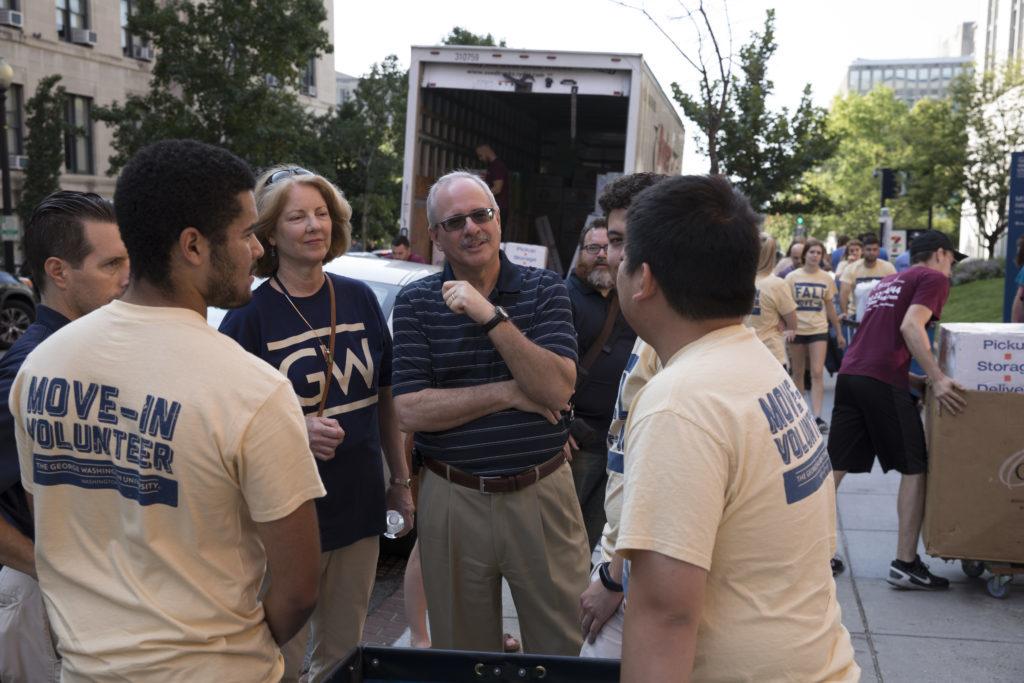A higher education commission determined last month that GW has met national education standards – marking the end of a more than two-year process to be reaccredited, according to a University release Friday.
The Middle States Commission on Higher Education, GW’s accrediting body, released a 29-page report naming GW satisfactory in all seven categories needed for reaccreditation, including the University’s mission and goals; design and delivery of the student experience; and governance, leadership and administration. The report found overall that GW is “an impressive example of a nationally recognized urban research university” but included suggestions for ways the University can improve its academics and student morale.
The determination wraps up two years of meetings, tours, self-evaluations and interviews on campus. Since 2016, an internal steering committee of faculty and administrators has led the reaccreditation process, which entered its final stages this fall with the publication of a 110-page self-study evaluating GW’s areas of strength, like career services, and its weaknesses, like international diversity.
A seven-person team of experts from peer schools – overseen by the Middle States Commission on Higher Education – also visited the University in March to assess nearly every aspect of GW and compare their findings to those of the self-study.
“The accreditation process is an exhaustive examination of virtually every corner of our university, especially our educational and research missions and our shared aspirations for the future,” University President Thomas LeBlanc said in the release.
The accreditation – which was the first under LeBlanc’s tenure and also the first to include the Corcoran School of the Arts and Design, which was absorbed by GW in 2014 – will remain in effect until the next review period begins in 2026, the release states.
In the Middle States report, evaluators proposed recommendations for the University to improve each of the seven focus areas, but they did not issue any requirements, the only binding suggestion the group can administer. The assessors largely focused on the student experience – one of LeBlanc’s key focuses since he stepped into his position last August.
The report lists several direct quotes from interviews with students during the evaluators’ visit to campus, including “I want to love GW, but George Washington makes it hard to love them back,” and, “There is no institutional identity; GWU needs a unifying theme.”
Assessors commended officials for current efforts to increase student satisfaction – including the consolidation of the enrollment and student affairs offices into one unit – but suggested issuing more frequent campus climate surveys and improving academic advising services.
“The student experience effort that is underway may be the most important work that George Washington is doing in this area, and it will require focused attention and commitment to advance this in a way that improves life on campus for students and that creates appropriate structures that work well for the campus and surrounding communities,” the report states.
The commission also suggested the University create a plan for long-term on-campus facilities improvements, create more resources for financially needy students and aggregate and analyze course evaluation data.
The report also noted the University’s accomplishments, including expanded online learning opportunities, proper fiscal management and the establishment of a website tracking LeBlanc’s major goals. The commission praised the establishment of the Division of Enrollment Management and Retention and the creation of the annual diversity summit.
“It is always gratifying when peers from other institutions validate the quality of the educational opportunities we provide, the progress we have made in fulfilling our research mission, our drive to improve and our commitment to acting in a responsible and ethical manner,” Provost Forrest Maltzman said in the release.





